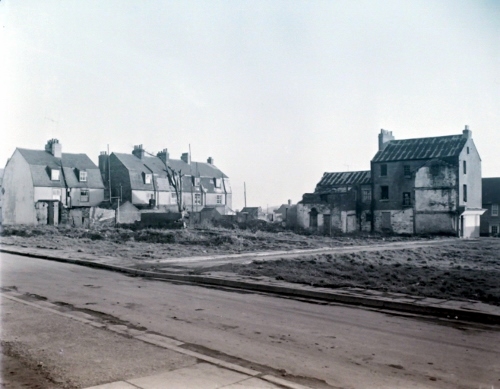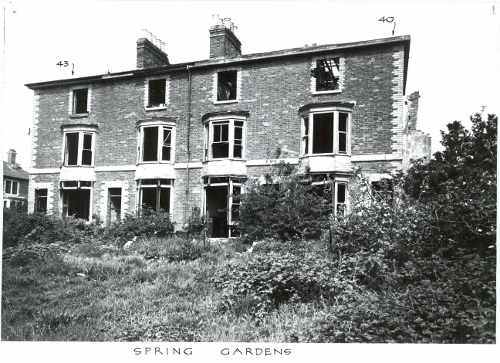Weymouth and its inhabitants suffered greatly during the war; its proximity to the naval base at Portland and its well-protected bay left it at the receiving end of several bombing raids.
The worst affected area in the borough was Chapelhay, residing on the southern side of the harbour. Photographs taken after the war show the extent of the devastation, with entire roads wiped from the face of the earth. Countless people were killed or injured, and many survivors were left homeless.
Personal and moving statements
In 1946 the decision was made to compulsorily purchase the area and build new social housing, a scheme so large that a public enquiry was required. The Weymouth Borough collection holds three volumes of transcripts from the enquiry (reference: DC-WYM/7I/222), providing a word for word record of what was discussed. Although the majority are on legal matters, the last volume holds personal statements from residents of the area. These heartfelt comments from local people, many of whom had lived and worked in the area for decades, are often moving. Some of the statements were made by individuals lucky enough to have had their houses survive the bombing raids, only to face having them pulled down after the war; their anger at the possibility of losing their homes evident.
Miss Sampson
Miss Sampson was a long-time resident of Chapelhay and worked as a nurse in the area. At the time of the enquiry Miss Sampson was living with a friend at 22 Rodwell Avenue, as her own home at the top of Oakley Place was in ruins. Her statement reflects the anger and distress felt by the community:
“Now we hear that all our houses where we are living are going to be bought and we will be asked to pay whatever rent the Corporation chooses to put on them… It is going to impoverish quite a number of people whose houses are going to be bought under this scheme. It is not fair and it is not English. Therefore I do feel that this plan should be very greatly modified.
Someone speaking of Mr Allen said that he had not the human touch. I have the human touch because it has been my practice to go in and out for these people and for 44 years I have done so, and my heart aches for the people who have been ruined today, who have lost everything and then are calmly told to apply for public assistance. That is what the bombed-out people are being told. Is it English, is it fair, for these people who have worked and denied themselves everything to get a home of their own so they might be able to live in comfort in their old age.”



Genuine voices from the past like these are extremely rare; only a tiny selection of documents of any age actually suggest how someone felt about a situation.



